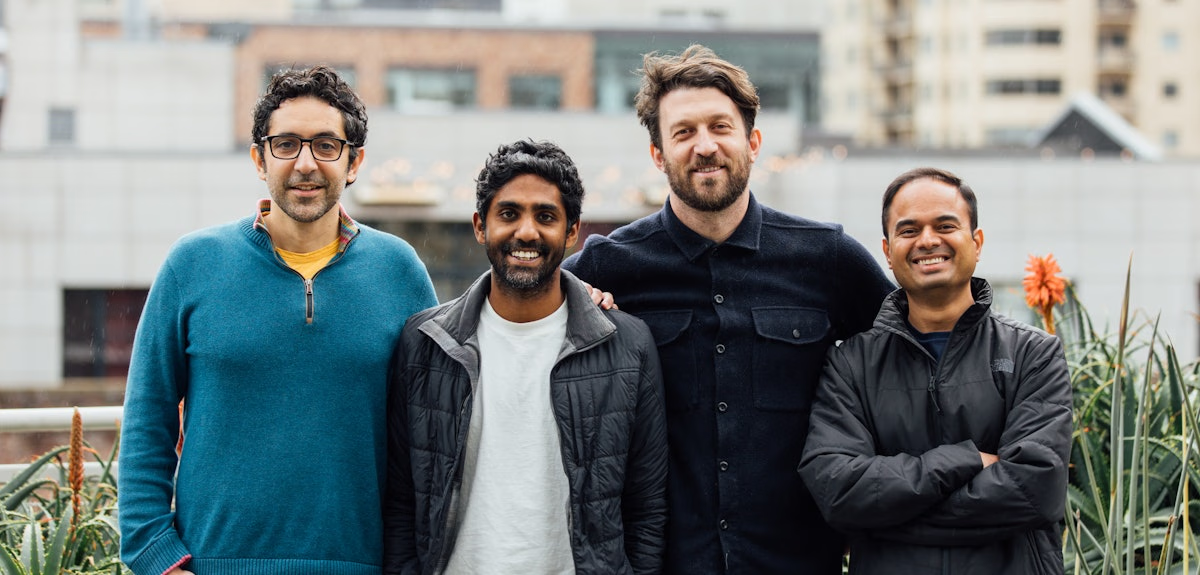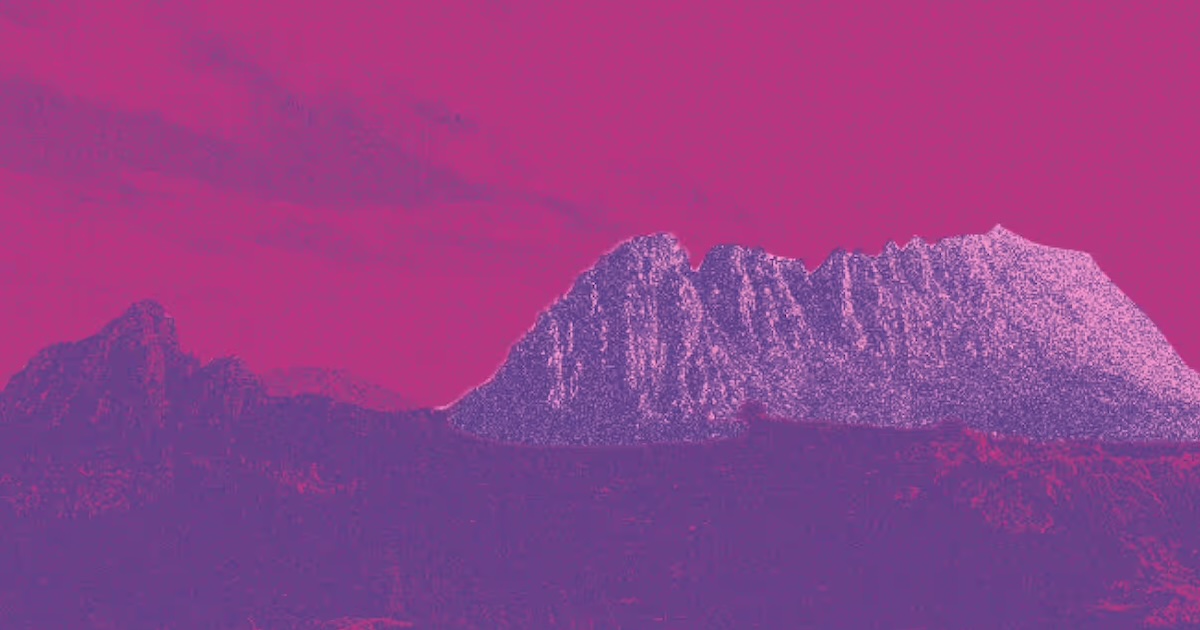
Foundry Mentor: David Bell, Remedy Robotics
We've recently launched Foundry, our flagship product for early-stage deep tech and biotech founders in Australia and New Zealand's researchers.
We run Foundry because we believe that research-led companies will be the cornerstone for solving humanity's greatest problems, and that Aussie and New Zealand researchers are the best in the world. We wrote a whole manifesto outlining it!
We have some proof to back this theory: we've supported companies like Opto Bio, PsiQuantum, SunDrive, Cortical Labs, Vexev, Syenta, Nomad Atomics, and Inventia Life Sciences, just to name a few. Today, we're chatting with Dave Bell, co-founder of Remedy Robotics, and one of the great mentors in Foundry.
Dave transitioned from a medical career to seek what truly excites him. During his MBA studies (which focused on ML and Robotics) at Stanford, he identified the problems he was passionate about solving and founded Remedy Robotics.
We dive into his career switch from medicine to entrepreneurship and the lessons he's learned along the way.
Don't forget that applications for Foundry are open now.
Blackbird: Tell us a bit about your background and where you grew up?
Dave Bell: Oh, my goodness. Alright, so I had a bit of a nomadic upbringing. I was born in Perth, lived overseas with my parents for a few years, and then moved back to Perth, Melbourne, and finally to Sydney. Now I'm here.
My family is full of doctors; my parents and grandfather were doctors on my mum's side. My grandad worked as an infectious diseases physician in South Africa during the AIDS outbreak, which greatly influenced me. On my dad's side, they're migrants to Australia who came after the Holocaust.
I always loved maths growing up. I wanted to be an academic mathematician, so I studied maths at uni and medicine. I ended up choosing medicine because it felt more practical at the time. I was a doctor for eight years, dabbling in general medicine, plastic surgery, cardiac surgery, intensive care, air retrieval work, and even some robotic surgery. So, all that mishmash has shaped me.
Blackbird: Let’s dig into your path from medicine to founding Remedy Robotics—why did you actually make the jump? And what was the moment for you when it became an imperative rather than an option?
DB: So, I never really loved medicine; found it a bit boring, to be honest. I loved the patients but felt like I'd turned into a technician despite all the study and learning. It didn't feel like the best use of my skills. I'm a creative person—like a frustrated engineer. I studied maths and was into robotics, but it wasn't making me happy.
What I realised was that I love problem-solving, creativity, and helping people, but I wasn't getting that itch scratched in medicine. I managed to get some time off from the College of Surgeons—who were really supportive—to do an MBA and study flow dynamics at Stanford. That's where it clicked: I saw the problems I was passionate about solving. So, I guess that's when I needed to make the move.
Blackbird: Can you summarise for us what Remedy Robotics is doing?
DB: So, Remedy is focused on expanding access to care for time-critical endovascular conditions. Our aim is that a patient in Tennant Creek should have the same access and quality of care as a patient at the Cleveland Clinic. We build software and hardware to make this happen, deploying surgical robots that lack specialist care to hospitals worldwide. These robots can either operate in a supervised autonomous mode or be remotely controlled by a specialist. This means people with urgent conditions don't have to travel to major hospitals, so they get treated quickly. Also, it raises the standard of endovascular surgery. We're targeting a niche market of around 4 billion people worldwide who currently lack access to surgical care.
Blackbird: Is it that bat sh*t crazy?
DB: Is it bat sh*t crazy? (laughs) No, I don't think so, which is one of the very interesting things about Remedy Robotics for me. I actually think it's the most reasonable thing ever. What I find bat sh*t crazy is that we would tolerate that where someone lives should affect their access to healthcare and their health outcomes.
So, I went to Stanford and decided to take all these machine learning classes…This huge focus was on self-driving cars, which is a really hard problem. You have cars driving through infinite streets, people walking out in front of them, inclement weather, and so on. Meanwhile, I'd just come out of the cath lab, and we were moving these catheters along very few degrees of freedom through anatomy with not a huge number of variations. Our data input was like a 2D greyscale image.
I thought if we can solve the problem of self-driving cars for whatever reason, surely we can solve this, which seems a far more tractable problem for bringing access to care for billions of people. It's not easy, but it's like 1,000 moderately difficult problems all stacked up in one. I think that's what's cool about it.
Blackbird: The single problem is massive, but you've turned it into 100,000 smaller ones. How'd you go about that? Any light bulb moments?
DB: That's a good question. So, there were a few different light bulb moments. The first was seeing people train models for self-driving cars and thinking, 'Hey, catheters move along fewer degrees of freedom. That's a solvable problem.' That's where the idea of a self-driving catheter came in. Light bulb moment number one.
The second moment was when we realised there weren't any endovascular robots out there for our software. So, we're a full-stack robotics company, giving us more control over what we're trying to achieve. That was light bulb moment number two.
Those were a couple of many light bulb moments. I can’t share most of them here!
Blackbird: Tell us about how you met your co-founder.
DB: I went looking for him, and I think that's the only way to meet a co-founder. Everything I do is hyper-deliberate. I don't like leaving things to luck or happenstance. If you want something, make a plan and go get it.
So, I was sitting in this 'Principles of Robotics Autonomy' class like an older student from the business school. I had this idea, which was a crackpot idea then. So, I bugged the robotics professor and said, 'Give me your smartest graduating PhD student; let me go chat with him.'
That's how I found my way to Jake. He had a lot of the characteristics that make a great co-founder or founder, although I didn't know it at the time. He was very disgruntled in the last year of his Ph.D. That was my first pitch to him. I think he thought I was crazy, but I won him over. And yeah, the rest is history. And I couldn’t have asked for someone better!
Blackbird: What's been the hardest part of the journey so far, and what's been the most rewarding?
DB: The hardest part, I think, is that I don't think medtech or health technology has been good; it's been an epic failure.
Speaking to a certain breed of venture capitalist who invests in that space and thinks they know it well—that can be quite difficult. Trying to keep my eyes on the prize and not get frustrated is hard. Firing people is always incredibly difficult.
What's been the most rewarding? I love every day. Honestly, for me, the most rewarding part is always building stuff. Starting with an idea, building the technology, and then getting it into the hands of the users or future users. Seeing them just be blown away and wowed and having them ask us for it now that's amazing. Being able to build something that's really going to have an impact, that people really want, is just amazing, yeah.
Blackbird: Tell us about someone who you've really admired during your time founding and running Remedy so far.
DB: My dad, and I think it's probably corny, but it's my girlfriend. She gave up a very successful law job and moved here for me. She sat at the bar, did all this stuff, and hunted for a job. That degree of selflessness and hard work, I just admire tremendously. So, yeah.
Blackbird: Entrepreneurship is often seen as a separate realm from raw research. If you think that's true, and why or why not?
DB: Interesting question. Fundamentally, I don't really believe in the concept of entrepreneurship. I'm not 100% sure I know what that is. I'll say a few things. Number one, I don't think people need to learn entrepreneurship. Definitely, if I were a researcher, I would think about entrepreneurship as you've done 90% of the cool stuff, and it's on paper.
Entrepreneurship is now that last 10%, getting that idea off paper into customers' hands and into people's lives. I think that's way harder but more gratifying than the first 90% of stuff you've done. To me, it's about the implementation of science rather than science on the benchtop. I think it's an extension of research.
If you want to leave your research existing on paper, publish it and move on—great. But if you really believe in it and think it's going to have a great impact, entrepreneurship is what drives that research into people's lives and customers' hands. So, yeah.
Blackbird: What's one piece of advice for young researchers, doctors or generally smart people considering starting a company to solve a really hard problem?
DB: Two bits of advice.
Number one, think long and hard about what makes you happy and what drives you. Make sure that's consistent with what a founder's life and lifestyle would be like. There's a lot of glorification around becoming a founder, a CEO or a CTO. It's hard work, it's immersive, it's your life. If you don't love that, there's no point doing it for some sort of glory at the end. That's one.
Number two, if you've done that and it's compatible with what a founder is, don't make excuses for why you can't do it. You don't need a business degree. You don't need a business co-founder. To me, business is about building something that the world and people really need, solving a problem, finding a need, and then working day or night, running through brick walls to make sure that gets to market. Everything else is just fluff.
Dave is a mentor in Foundry.
Applications for Foundry are open. We’’re looking for researchers, PhD students, postdoc/Fellows or even just passionate science students trying to solve hard problems and have a great impact. Apply for Foundry here.



.jpg)




.avif)
